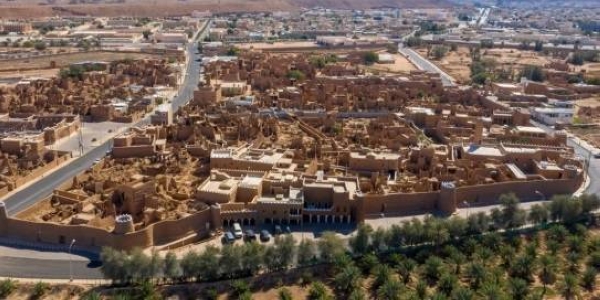The Heritage Commission in Saudi Arabia has recently announced the registration and classification of 500 new sites in the urban heritage register, adding to the existing 4,540 registered diverse urban heritage sites across the Kingdom. These sites serve as a testament to the rich historical depth of Saudi Arabia, which has been a melting pot of various civilizations for thousands of years. The newly registered sites are spread across different regions, with Riyadh having the highest number of sites at 413, followed by Makkah, Al-Baha, Hail, Jazan, and Aseer. Additionally, smaller numbers of sites were registered in the Eastern, Najran, and Al-Jouf regions, as well as Tabuk and Qassim regions each registering one site.
The Heritage Commission is committed to the preservation of Saudi Arabia’s historical and cultural heritage by continually documenting and exploring archaeological sites. The commission aims to develop management, conservation, and protection plans for these sites to ensure their sustainability. By doing so, they are contributing to a comprehensive strategy to boost Saudi Arabia’s reputation as a global destination for heritage and culture. With this dedication to safeguarding their heritage, Saudi Arabia is showcasing its commitment to preserving its rich history for future generations to appreciate and learn from.
The 500 newly registered sites represent a broad spectrum of Saudi Arabia’s diverse history, providing a glimpse into the various civilizations that have called the Kingdom home over the centuries. These sites offer a unique opportunity for visitors and locals alike to immerse themselves in the rich culture and heritage of Saudi Arabia. By highlighting these sites, the Heritage Commission is not only preserving the physical remnants of the past but also ensuring that the stories and traditions associated with these sites are passed down through generations.
Riyadh, as the capital city of Saudi Arabia, boasts the highest number of registered sites, showcasing the historical significance of the region. Makkah, as another prominent region, also has a significant number of registered sites, reflecting its importance as the holiest city in Islam. Al-Baha, Hail, Jazan, and Aseer each contribute to the diverse array of heritage sites across the Kingdom, offering a unique glimpse into the cultural tapestry of Saudi Arabia. By documenting and preserving these sites, the Heritage Commission is ensuring that the heritage of these regions is protected and celebrated for years to come.
In addition to registering and documenting these sites, the Heritage Commission is actively working on developing management plans and conservation strategies to ensure the long-term sustainability of these heritage sites. By implementing these plans, the commission is not only safeguarding the physical structures but also preserving the intangible heritage associated with these sites. This comprehensive approach to heritage conservation demonstrates Saudi Arabia’s commitment to protecting its history and culture for future generations.
Through the registration and classification of 500 new sites in the urban heritage register, the Heritage Commission is further solidifying Saudi Arabia’s position as a global destination for heritage and culture. By showcasing the richness and diversity of the Kingdom’s history, these sites serve as a window into the past, allowing visitors to connect with the traditions and customs of bygone eras. With a focus on preservation and sustainability, the Heritage Commission is paving the way for a future where Saudi Arabia’s rich heritage remains a source of pride and inspiration for generations to come.










